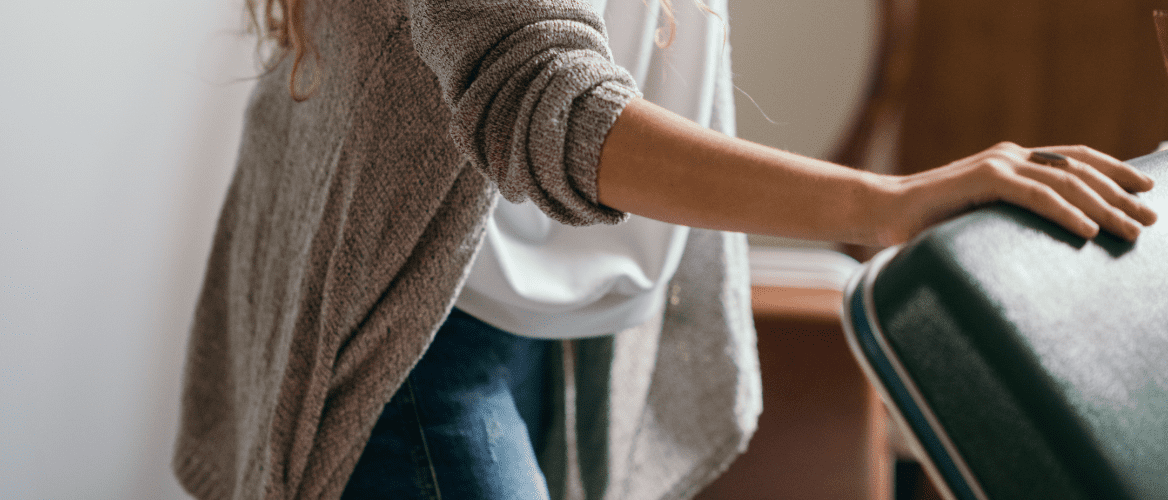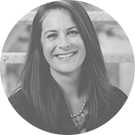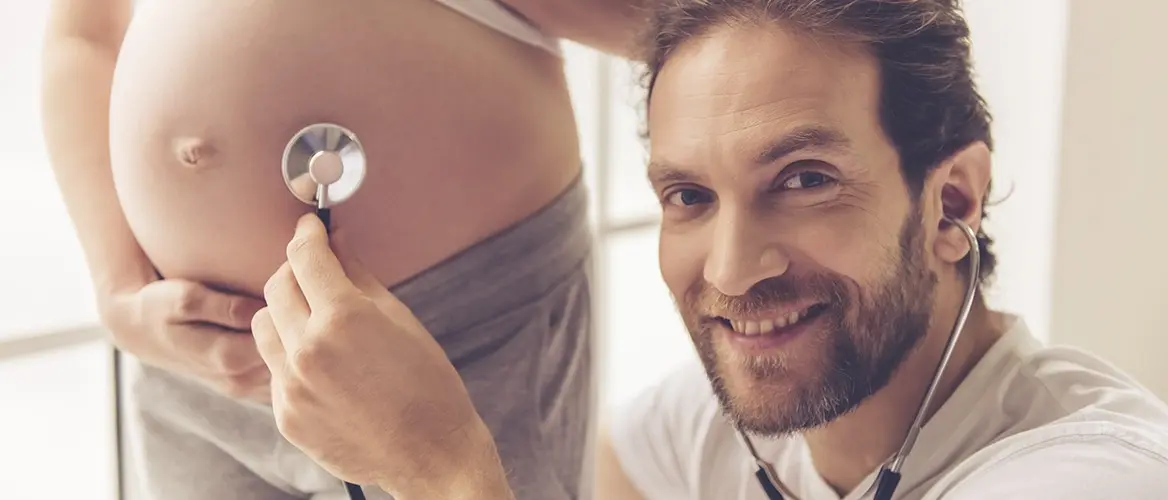May 6, 2021
July 17, 2025
If you’re having your first baby and you don’t know what to buy, you’re not alone. But never fear - this checklist offers only the essentials of what to get for your newborn baby - no more, no less. That way, you won’t be stuck missing important items and you also won’t go overboard on unnecessary items. Continue reading to discover our checklist of newborn baby essentials
10 Newborn Baby Essentials
1. Diapers: Newborn babies go through a lot of diapers. Usually 10-12 per day in the first few months. Diapers go by your baby’s weight, so if you’re not sure what their weight will be at birth, you can buy a pack of a couple of different sizes just in case. Once your baby is born, you can stock up on the right size. You’ll also have to decide between disposable and cloth diapers. Disposable is the norm these days; they’re easier to clean (just throw them out!) and they tend to wick away liquid better, but cloth diapers can be better for the environment.
2. Wipes and cloths: You’ll use several wipes each time you clean up your baby, so make sure you have plenty on hand. As with diapers, these can be disposable or reusable rags. There are many different types, some water-based, some scented, and some for sensitive skin. On a related note, babies tend to make a mess, from spit up or drool, so you need something to wipe their face and hands. Muslin cloths are the way to go.
3. Assorted baby clothes: Dressing up your baby is one of the most fun parts of the first few months. However, many people get way too many cute outfits that the baby will outgrow in a matter of weeks. Some people also forget to take the season into account - for example, don’t buy a tiny coat and warm fuzzy hat if your baby is born during summer
Below, see the newborn baby essentials you will need:.
- Onesies
- Pajamas
- Shirts and shorts/pants
- Socks, hats, mittens
- Sweater or coat
- 4. Changing pad: Your baby’s diapers are bound to get messy, so a specific place to change them is an absolute essential for keeping your living quarters clean. You could get a foam or plastic pad that is not only easy to wipe down, but will also keep your little one comfy and safe. There are also washable or disposable changing pads
- 5. Blanket: Babies are very sensitive to heat and cold, so one of the items you cannot forget is a blanket, such as a lightweight receiving blanket or a thicker fleece blanket for keeping them warm in the stroller or car. Keep in mind, it is not recommended to cover newborns in blankets when sleeping in a crib (due to SIDS risk), instead using a swaddle or sleep sack.
 6. Rear-facing car seat: Newborn babies need a special car seat for the first year of their life. Due to their small size and for safety reasons, the car seat must be rear-facing. Make sure that it fits in your car and that you have it properly installed before your trip to the hospital to give birth. If you’re worried about your baby facing away, you can get a mirror if you want to check on your baby from the front seat.
6. Rear-facing car seat: Newborn babies need a special car seat for the first year of their life. Due to their small size and for safety reasons, the car seat must be rear-facing. Make sure that it fits in your car and that you have it properly installed before your trip to the hospital to give birth. If you’re worried about your baby facing away, you can get a mirror if you want to check on your baby from the front seat.- 7. Bassinet or crib: Babies sleep most of the day, so it is an absolute necessity to have a safe space for your baby to sleep. A bassinet goes next to your bed and typically sleeps your baby up until around 6 months of age. After that, you then move them into a lower-level crib for the next few years. It is recommended that your baby sleeps in the same room as you for 6-12 months to prevent SIDS.
- 8. Stroller or wrap: Are you planning on baby-wearing? A baby carrier or wrap could be the way to go, it’s perfect for getting lots of skin to skin time. However, babies quickly gain weight, and if you’re not interested in carrying your baby around all the time, maybe you’d rather use a stroller. Make sure it folds up, fits in your car and elevator, and that the wheels turn easily.
- 9. Toys: Though newborns mostly sleep and eat, there will be times when they need to be entertained. Newborns don’t need the bells and whistles that older kids do, so consider these toys:
- Black and white images or toys, since newborns see contrasting colors better at first.
- Mobile for above their crib or stroller.
- Play gym or mat for tummy time.
- Rattle or toys that move or make noise.
- Soft books, blocks, or balls.
- Stuffed animals to cuddle, kiss, and narrate their favorite stories.
- 10. Thermometer: Whether to take your baby’s temperature when you suspect they have a fever or to check the water temperature of their bath, a thermometer is a real essential. You don’t want to be caught without one in those stressful moments! And while we're on the subject of your baby's health, you might want to take a look at Caser Expat Insurance website, where you will find Family Health Insurance. This insurance has a childbirth preparation programme, so that you and your baby feel safe and protected at this important stage. In addition, you can get a quotation using the price calculator in less than a minute!

10 things that are nice to have, but not essential
- 1. Music box or white noise machine: Everyone loves music - babies included! Get a machine or toy that plays music, white noise, a heartbeat sound, ambient sounds, etc. Humming along will be sure to entertain your baby or put them to sleep.
- 2. Baby nest: A baby nest is great for the first few months to have a safe, comfy space to place your baby when you’re lounging on the couch or relaxing on the bed. Be sure to watch your baby so they don’t smother themself or roll out.
- 3. Baby towel: Your little baby will look so small in an adult size towel, so maybe you’ll want to get them their own towel.
- 4. Shoes: Newborns can’t walk, so they don’t really need shoes - but they look so darn cute that you’ll probably end up buying a pair. If you’re buying only the essentials, stick with socks or booties during the first months.
- 5. Shampoo, soap, lotion, diaper cream: Newborn babies don’t need most of the cleaning products adults use. A simple water bath will be more than enough on most days, but when they’re particularly smelly you will want to introduce some soap and also apply lotion afterwards to prevent dry skin.
- 6. Bouncer or swing: Babies love movement. Anything that mimics the rocking in your arms is sure to be a hit. A bouncer or swing is nice for keeping your newborn entertained and giving your arms a much-needed break from holding your little one.
- 7. Baby bathtub: If you want to be extra cautious, a baby bathtub is a good option. It can also help you save water, from not having to fill the whole tub each bath time.
- 8. Changing table: You’ll be bending over a lot to change diapers and change your baby’s clothes. The benefit of a changing table is that it’s high enough so that you won’t hurt your back. Many double as a set of drawers for use after your baby grows up!
- 9. Diaper trash can: Diapers can be very smelly, and there are special types of trash cans just for this. In the first few months though, your baby’s poopy diapers won’t smell too bad because they haven’t started eating food yet. Save this buy for later on.
- 10. Pacifier and chain: Some babies take a pacifier, which can ease those crying jags all newborns go through. If your baby does take a pacifier, make sure to buy a chain, so it isn’t always falling to the floor.
With this checklist of newborn baby essentials, you’ll be all set for the first few months of your baby’s life. And keep in mind that if you’re looking for more information on healthcare in Spain, discover more posts on the Typical Non Spanish blog, a space designed exclusively for expats living in Spain, just like you!
|
If you are searching for health insurance in Spain, Caser Expat Insurance has the right policy for you!
|
Frequently Asked Questions
A comprehensive newborn baby essentials checklist should include everything a baby needs for daily care, sleep, feeding, hygiene, clothing, and safety. Key categories typically include diapers and wipes, onesies and sleepwear, bottles and formula or breastfeeding supplies, a safe sleeping space like a crib or bassinet, baby blankets, a car seat, and a stroller. Other useful items are baby soap and lotion, a baby bathtub, nail clippers, a thermometer, and a diaper bag. Optional items like a baby monitor or pacifiers can also be helpful depending on your lifestyle.
While baby stores may advertise hundreds of products, you really only need around 20 to 30 essential ítems to get started with a newborn. These cover the basics: feeding, changing, clothing, bathing, and sleeping. Many other items like bottle warmers or wipe dispensers, are convenient but not strictly necessary. Focusing on the essentials first helps avoid overspending and clutter, especially since babies grow quickly and their needs change in the first months.
It's a good idea to start preparing your checklist around the second trimester, ideally between weeks 20 and 28 of pregnancy. This gives you enough time to research products, set a realistic budget, and gradually acquire the items you need without rushing. It’s also useful in case the baby arrives earlier than expected. Having the basics ready by the start of your third trimester can offer peace of mind and reduce last-minute stress.
The top five must-haves for any newborn baby essentials checklist are: diapers, a safe place to sleep (like a crib or bassinet), baby clothes (such as onesies and sleepers), feeding supplies (whether bottles or breastfeeding accessories), and a car seat approved for newborns. These are the core items you'll use from day one, and everything else can be added gradually as needed.
.png?width=344&height=67&name=logo_caser%20(2).png)







Let Us Know What You Thought about this Post.
Put your Comment Below.